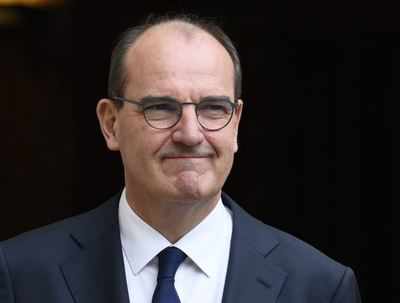This website uses cookies so that we can provide you with the best user experience possible. Cookie information is stored in your browser and performs functions such as recognising you when you return to our website and helping our team to understand which sections of the website you find most interesting and useful.

French PM Jean Castex (AFP, File photo)
PARIS: Travellers entering France from 16 countries where the coronavirus is circulating widely are having to undergo virus tests upon arrival at French airports and ports.
French Prime Minister Jean Castex announced last month that the tests would be required starting Aug 1 for the arriving passengers France is allowing in from the listed countries unless they present proof of a negative test done within 72 hours of their departure.
Those who test positive in France as of Saturday must quarantine for 14 days.
France is not permitting general travel to and from the 16 countries, which include the United States and Brazil. The testing requirement therefore only applies to people entering under limited circumstances - “French citizens who live in these countries or citizens of these countries with an established residence in France,” Castex has said.
Daniel Court was tested at Paris-Charles de Gaulle Airport after coming in from the French Riviera city of Nice. He acknowledged not loving the experience.
“It's very fast, but I have to say that it's not very pleasant. It is surprising. But we have to do it," Court said.
Another passenger who got tested after landing at Paris' main airport, Nadia Vusik of Belarus, said she thought the new policy made sense.
“It is definitely necessary, and I am happy that in France it is possible to do right here. It's very convenient.” Health authorities have said that the number of confirmed Covid-19 cases has jumped on the French mainland in recent weeks.
The government previously made mask-wearing mandatory in all indoor public spaces.
The French government has so far ruled out imposing another nationwide lockdown after the one that brought the country to a standstill for nearly two months between March and May.



 Africana55 Radio
Africana55 Radio 
